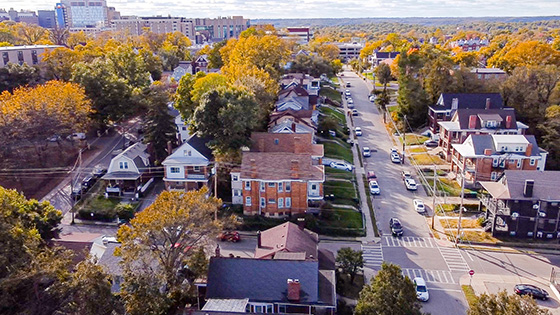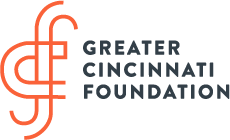How an Innovative Partnership is Keeping Families in Their Homes
Each day our lives begin and end in the place we call home. Greater Cincinnati Foundation (GCF) recognizes the positive and transformative impact that safe, affordable, and quality housing can make on individuals and families. As a community foundation, GCF is committed to creating a vibrant region by investing in initiatives that remove barriers and build opportunities so that everyone can reach their full potential.
“Our region’s current housing ecosystem faces many challenges, but with those challenges come incredible opportunities,” said Rasheda Cromwell, chief impact officer at GCF. “We will continue leaning into our deeply held partnerships with community stakeholders to identify promising projects in the region and deploy capital through targeted grantmaking, impact investments, and leveraging private and public dollars to improve the quality of life in our community.”
Greater Cincinnati, like many metropolitan areas, is in desperate need of more housing at almost every income level. A recent Cincinnati Futures Report found that “Over the last decade, fewer than half of all City neighborhoods have had a net increase in new housing units”.
Seeing a need, GCF commissioned LISC of Greater Cincinnati to create Housing Our Future, an in-depth study of our region’s housing ecosystem and a roadmap for sustainable housing development and preservation.
The report identifies the preservation of existing housing stock, including maintenance and repairs for many aging homes, as one of the key focus areas to address regional housing needs.
Using this report as a guidepost, stakeholders recently launched the Revive + Thrive Home Repair Loan Program. The initiative received public and private funding including a $1 million impact investment from GCF and an additional $1 million leveraged through LISC.
The Revive + Thrive Home Repair Program provides financial assistance to moderate-income homeowners to make essential repairs to maintain and preserve their homes. Many long-time homeowners on a budget are finding it difficult to afford essential home repairs, such as replacing a roof, stabilizing a foundation, or upgrading a heating system. This challenge is compounded by the high interest rates following the COVID-19 pandemic. When maintenance is deferred, homes can fall into despair, becoming unsafe and in some cases, removing a home entirely from our regional housing stock.
This support for homeowners will keep more families in their homes, having a lasting impact on the health and well-being of a family, while building generational wealth through homeownership.
Families and individuals who earn up to 80% of the area median income — $75,500 for a family of three — are eligible to participate in this program. Participants can receive a low-interest loan at a rate of 2%, which is repayable over a term of up to 10 years. Loan amounts range from $5,000 to $25,000.
In addition to low interest rates, the program is unique in the fact that homeowners are guided through the entire process, including the contracting phase, thanks to partnerships with United Way of Greater Cincinnati, Working in Neighborhoods, Warsaw Federal, and Habitat for Humanity.
The incredible partnership among the public, private, and nonprofit sectors in Greater Cincinnati to develop and maintain this program serves as a model for future success. Each organization brings a unique asset, such as Warsaw Federal’s ability to provide loan underwriting and servicing and Habitat for Humanity’s established relationships with local contractors.
GCF is providing $1 million in support in the form of an impact investment. Impact investing is a charitable tool used to create social impact and generate a financial return. “Without GCF’s investment, we would not be able to offer this program,” said Kristen Baker, executive director of LISC Greater Cincinnati. “The interest environment right now in the financial industry is challenging. GCF’s impact investment was the last piece to the puzzle and got us to the place where we could offer a 2% interest rate.”
As we look ahead and consider how GCF can create a sustainable and lasting impact, it is clear that investing in our region’s housing supply and promoting greater housing affordability will continue to be a strategic focus. We look forward to collaborating with dedicated community partners who are actively engaged in listening, learning, and strategizing about our way forward, together.
If you’d like to support GCF’s housing work in the region, please reach out to Robert Killins, Jr. vice president, community investments at 513-768-6151 or robert.killins@gcfdn.org.

